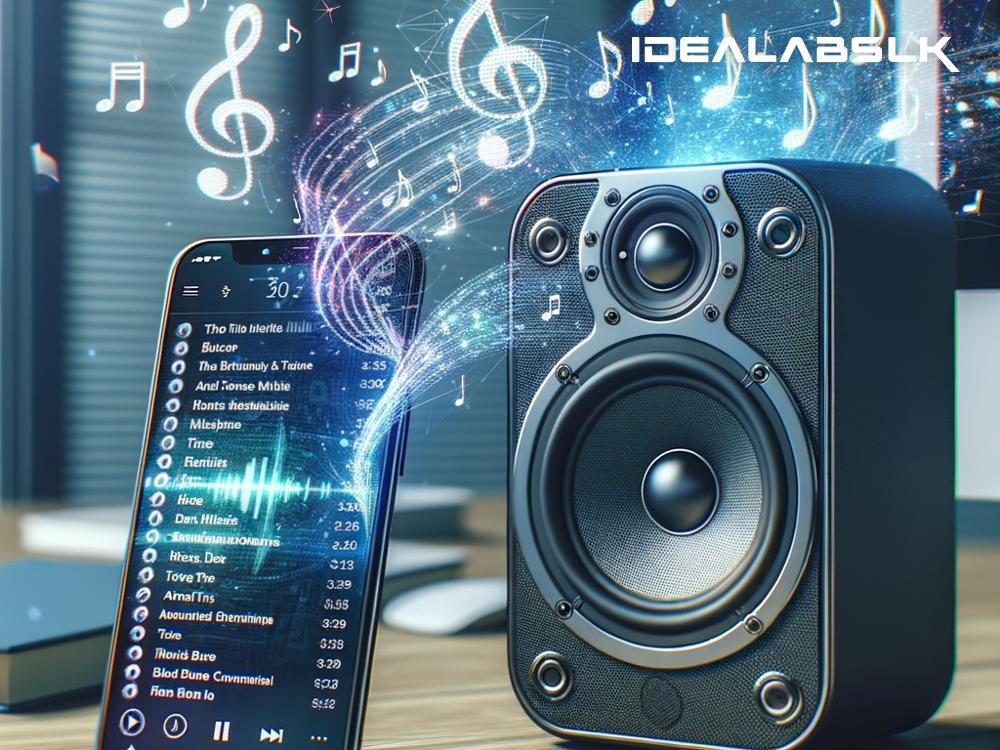In an era where technology constantly influences our daily routines, music has remained a universal language that connects people, evoking emotions and memories. With the rise of smart audio devices, like smart speakers and smartphones, enjoying music has become more convenient. But have you ever wondered how your device seems to know exactly what song to play next, perfectly matching your mood or taste? This magic is largely due to artificial intelligence (AI) and its role in automating music curation.
The Basics of Music Curation
Music curation, in simple terms, is the process of selecting and organizing music into playlists or recommendations. Traditionally, this task was carried out by human curators - think of radio DJs or the friend who always knows what song to play next. However, as music libraries expanded with digital media, manually curating music for millions of listeners became an overwhelming challenge. Here's where AI steps in, making music curation not only faster but also surprisingly intuitive.
How AI Automates Music Curation
AI in smart audio devices utilizes a combination of technologies including machine learning, natural language processing, and data analytics to understand and predict what music you would like to listen to at any given moment. Let’s break down how it works:
-
Learning From Data: The first step is data collection. AI systems analyze your listening habits - what songs you play, skip, like, or repeat. But it doesn't stop there; it also looks at what time of the day certain tracks are played and even listens to the songs themselves to understand their content and mood.
-
Understanding Preferences: The AI then uses machine learning algorithms to find patterns in this data. Over time, it starts recognizing your music preferences, including genres, artists, and even the tempo of songs you prefer at different times or days.
-
Predicting and Recommending: This is where the magic happens. Based on the patterns it has learned, the AI predicts what music you might enjoy next and automatically curates personalized playlists. The more you listen, the more data it has, and the better it gets at predicting.
-
Natural Language Processing: AI also understands spoken commands thanks to natural language processing. So, when you tell your smart speaker to “play some relaxing music,” it knows not only what type of music is generally considered relaxing but also what you personally find relaxing based on your listening history.
How Smart Audio Devices Use AI for Music Curation
Smart audio devices, such as smart speakers, smartphones, and even smart TVs, have integrated AI technologies to make music listening a seamlessly personalized experience:
-
Voice-Activated Controls: You can ask your device to play music based on genre, mood, or specific requests like “play something I can dance to,” and AI works behind the scenes to fulfill this request accurately.
-
Seamless Integration: These devices are often linked to streaming services that have vast music libraries, giving AI a vast playground to find the perfect song for you. Integration with your calendar, weather, and other personal information allows AI to curate music that fits not only your taste but also your current context.
-
Continual Learning: AI doesn’t just stop learning after the first few tries. It continuously analyzes your interactions, making your music recommendations more accurate over time.
The Future of AI in Music Curation
As AI technology evolves, so will its capacity to curate music. We can expect even more personalized listening experiences, with AI predicting and playing music based on our mood, the time of day, and perhaps even our physical activity without us having to input a single command.
Moreover, AI could revolutionize music discovery, introducing us to new artists and genres we never would have explored otherwise, all based on our unique listening profiles. As these technologies become more sophisticated, the line between the digital curator and the human touch will blur, creating a soundtrack to our lives that feels deeply personal and yet is effortlessly automated.
Conclusion
In essence, AI has transformed music curation in smart audio devices from a manual, time-consuming process into an automated, highly personalized experience. By understanding our preferences and context, AI not only makes it easier for us to enjoy our favorite songs but also opens doors to new musical horizons. As we continue to interact with these intelligent systems, our musical world will continue to expand, making every listen a discovery and every moment soundtracked perfectly.

